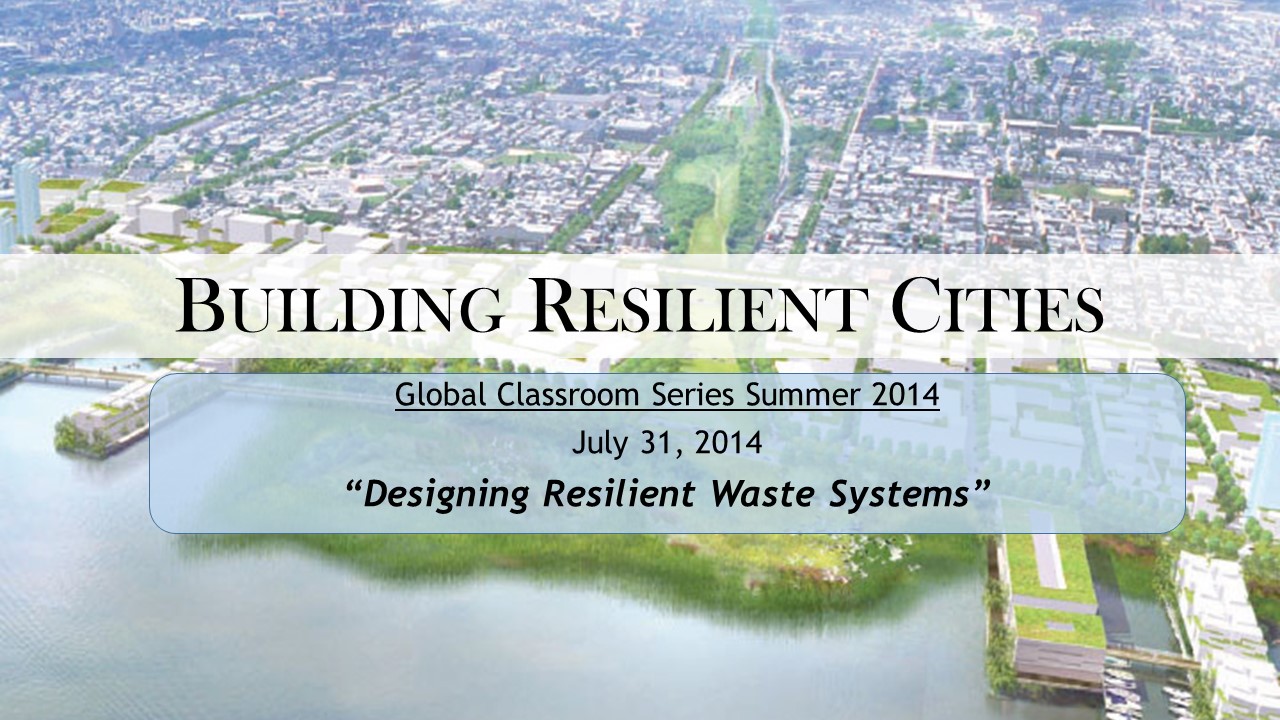 One of the byproducts of an ever increasing population is the municipal waste that we leave behind. This waste exacerbates an already deteriorating climate situation by further damaging air quality and emitting toxic gasses. Given that the typical four-member American family wastes 122 pounds of food each month on average, it is no surprise that the United States produces 70% of the world’s solid waste. However, although we live wasteful lifestyles, the US has a unique platform to make-up by being a leading innovator in reducing waste and building resilient waste systems.
One of the byproducts of an ever increasing population is the municipal waste that we leave behind. This waste exacerbates an already deteriorating climate situation by further damaging air quality and emitting toxic gasses. Given that the typical four-member American family wastes 122 pounds of food each month on average, it is no surprise that the United States produces 70% of the world’s solid waste. However, although we live wasteful lifestyles, the US has a unique platform to make-up by being a leading innovator in reducing waste and building resilient waste systems.
The simplest way to divert our waste stream is to recycle more. The Environmental Protection Agency (EPA) estimates that approximately thirty-five percent of solid waste is currently recycled, but that number could climb to upwards of 75% if everything is disposed of properly. Another method of waste diversion is composting, or the process of decomposing organic matter to mulch for fertilizing the soil. While the global waste stream consists of 46% organic matter, 95% of which can be composted, only 3% of it is actually composted. As a result, the waste that is not properly disposed of ends up in landfills and incinerators, which emit harmful greenhouse gases, especially the particularly potent methane. Despite our faulty practices, Americans recycled and/or composted 86.6 million tons of municipal solid waste in 2012; effectively eliminating the CO2 emissions equivalent to 33 million passenger vehicles. The possibilities are endless if our entire waste stream were disposed of as they should.
Another important waste system is wastewater management. This is the process of taking stormwater runoff and processing sewage for safe circulation back into the environment. This highly complex process is crucial for preserving our precious water resources from contamination and for reclaiming water for other uses. Given the proximity of these treatment plants to large rivers and coasts, they are particularly vulnerable to climate-related disasters, which makes it essential that local jurisdictions take resiliency measures to protect their treatment centers.
Here in San Diego, we currently have plans to be zero waste by 2040. Since San Diego’s public landfills are quickly reaching maximum capacity, it is becoming even more urgent that we divert more of our waste stream from landfills. Measures currently being encouraged include increased composting, reduction in packaging, and elimination of plastic bags.
Most importantly, when it comes to waste systems, it comes down to the mindset of the populace in waste disposal. Everyone needs to play his or her part in adapting the three R’s of waste management: Reduce, Reuse, and Recycle. However, we encourage everyone to go even further and consider five additional R’s for their waste streams: Recover, Regift, Rethink, Refuse, and Repair. At the end of the day, it is up to you and me to play our part in properly disposing of our trash in order to ensure a more resilient future.
